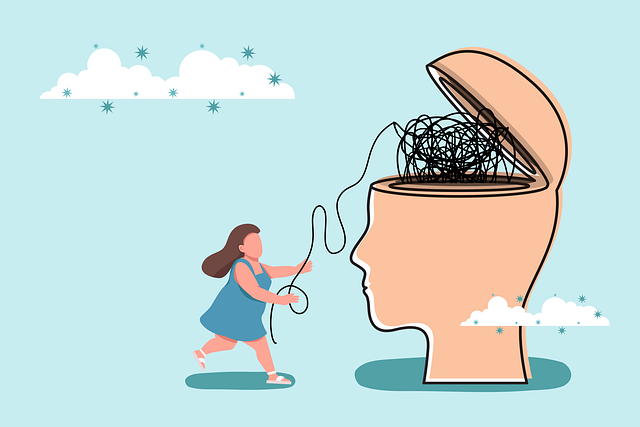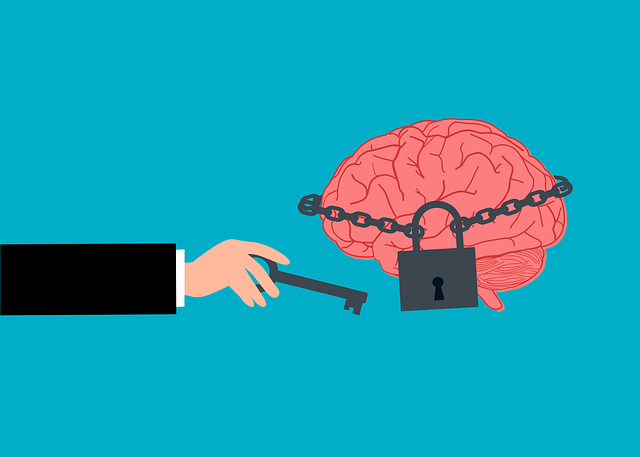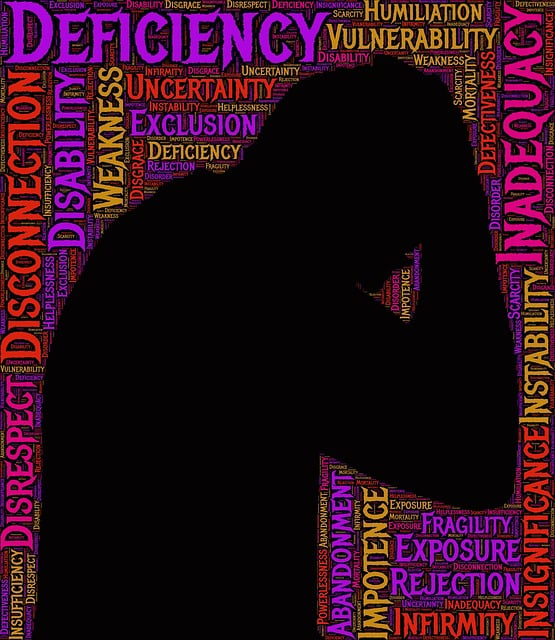Aurora German Speaking Therapy offers a specialized, culturally sensitive approach to mental health care for German-speaking individuals, overcoming language barriers and fostering deeper connections through their unique services. Their successful initiative involves understanding community needs, integrating various strategies, and providing accessible resources in multiple languages. Evaluation methods combine quantitative data with qualitative insights from client narratives and feedback, ensuring both statistical significance and meaningful impact. Regular check-ins, surveys, and focus groups facilitate continuous refinement of programs like Stress Management Workshops, refining services based on participant outcomes and experiences to better serve the community's evolving mental wellness needs.
“Uncovering the effectiveness of mental wellness programs is crucial for fostering holistic well-being. This article explores comprehensive evaluation methods, offering insights into optimizing initiatives. We present ‘Aurora German Speaking Therapy’ as a unique approach, highlighting its benefits and design principles. By combining quantitative and qualitative techniques, we delve into participant engagement, feedback collection, and continuous improvement strategies. Learn how these methods enhance the Aurora program’s impact, ensuring it remains a vibrant, effective mental wellness resource.”
- Understanding Aurora German Speaking Therapy: An Overview of the Approach and Its Benefits
- Program Design and Development: Creating a Comprehensive Mental Wellness Initiative
- Evaluation Methods for Measuring Impact: Quantitative and Qualitative Techniques
- Participant Engagement and Feedback: Encouraging Open Communication and Data Collection
- Continuous Improvement: Using Evaluation Findings to Refine and Enhance the Program
Understanding Aurora German Speaking Therapy: An Overview of the Approach and Its Benefits

Aurora German Speaking Therapy offers a unique and specialized approach to mental health treatment, catering specifically to individuals who prefer or require therapy in their native language—German. This therapeutic method recognizes the power of language as a tool for healing and emotional expression, addressing cultural sensitivity in mental healthcare practice. By employing German-speaking therapists, Aurora ensures that clients can openly discuss personal experiences and challenges without linguistic barriers, fostering deeper connections and more effective therapy sessions.
The benefits of this approach extend beyond language accessibility. It allows individuals to connect with therapists who understand the nuances of their cultural background, particularly in contexts where mental health services may be limited or non-existent in native languages. This cultural sensitivity in mental healthcare practice enables clients to explore their identities and experiences within a supportive environment, promoting improved mental wellness. Additionally, Aurora’s German Speaking Therapy can facilitate better adherence to treatment plans, as clients feel more comfortable and empowered to participate actively in their therapy journey.
Program Design and Development: Creating a Comprehensive Mental Wellness Initiative

Creating a comprehensive mental wellness initiative requires meticulous program design and development, especially when catering to diverse populations like those served by Aurora German Speaking Therapy. The first step involves understanding the unique needs and challenges faced by individuals within the community, ensuring cultural sensitivity and relevance. This might include gathering input from local experts, community leaders, and individuals with lived experiences to inform the program’s direction.
A well-rounded approach integrates various components such as emotional regulation techniques, confidence-boosting activities, and accessible resources tailored to different age groups and backgrounds. For instance, developing a series of mental wellness podcasts in both German and English can cater to a broad audience, offering practical tips and insights on improving mental health and fostering resilience. Such initiatives should be continuously evaluated and adapted based on feedback and emerging research, ensuring the program remains effective and aligned with the evolving needs of the community it serves.
Evaluation Methods for Measuring Impact: Quantitative and Qualitative Techniques

When evaluating the impact of mental wellness programs, such as those offered by Aurora German Speaking Therapy, both quantitative and qualitative techniques play a crucial role in understanding the program’s effectiveness. Quantitative methods involve the use of numerical data and statistical analysis to measure outcomes. This could include tracking participant demographics, pre-post assessment scores on standardized measures of mental health, and participation rates in various activities. For instance, Aurora German Speaking Therapy might track improvements in anxiety levels or depression symptoms using validated scales.
Qualitative techniques, on the other hand, delve deeper into participants’ emotional healing processes and experiences with trauma support services. Methods like individual interviews, focus groups, and self-awareness exercises can capture rich narratives that quantitatives measures may miss. Participants may share their personal journeys, highlighting improvements in coping strategies or increased self-awareness through exercises offered by Aurora German Speaking Therapy. This holistic approach ensures that the program’s impact is not only statistically significant but also meaningful and transformative for each individual, fostering a deeper understanding of emotional well-being and personal growth.
Participant Engagement and Feedback: Encouraging Open Communication and Data Collection

Encouraging open communication is a vital aspect of evaluating mental wellness programs, as it allows participants to share their experiences and provide valuable feedback. At Aurora German Speaking Therapy, we recognize that active participant engagement fosters a supportive environment for personal growth and healing. Through regular check-ins, surveys, and focus groups, our clients have the opportunity to voice their thoughts, concerns, and suggestions regarding the program’s effectiveness and impact on their mental wellness journey. This two-way dialogue enables us to adapt and tailor our services to meet individual needs, ensuring a more meaningful and successful outcome.
Data collection is another key component of our evaluation process, as it helps measure progress and identify areas for improvement. The Stress Management Workshops Organization employs various data-gathering techniques, such as pre and post-program assessments, to track changes in participants’ stress levels, coping strategies, and overall mental wellness. By collecting quantitative and qualitative data, we gain insights into the program’s success in promoting positive thinking and empowering individuals to take control of their mental health. This information is invaluable for continuously enhancing our offerings and creating a supportive, transformative experience for every client.
Continuous Improvement: Using Evaluation Findings to Refine and Enhance the Program

At Aurora German Speaking Therapy, we believe that evaluation is a continuous process aimed at refining and enhancing our mental wellness programs. By closely examining the outcomes and experiences of participants, we can identify areas for improvement and tailor our approach to better meet their needs. This iterative method not only ensures the effectiveness of our services but also fosters a culture of continuous learning and growth within our organization.
The insights gained from program evaluations are invaluable in refining our Stress Management Workshops. By understanding what aspects resonate most with participants, we can strengthen our curriculum and delivery methods. Moreover, this feedback loop allows us to integrate innovative strategies that promote effective stress management, ensuring our programs remain relevant and impactful in addressing the evolving mental wellness needs of our community.
The implementation of a mental wellness program, such as Aurora German Speaking Therapy, requires a robust evaluation framework to ensure its effectiveness. By combining quantitative data analysis with qualitative insights from participant feedback, programs like these can accurately measure their impact and identify areas for improvement. Through continuous refinement based on evaluation findings, initiatives can enhance service delivery and better support the mental health and well-being of participants. This iterative process is key to creating a comprehensive and impactful mental wellness program that adapts to emerging needs.














